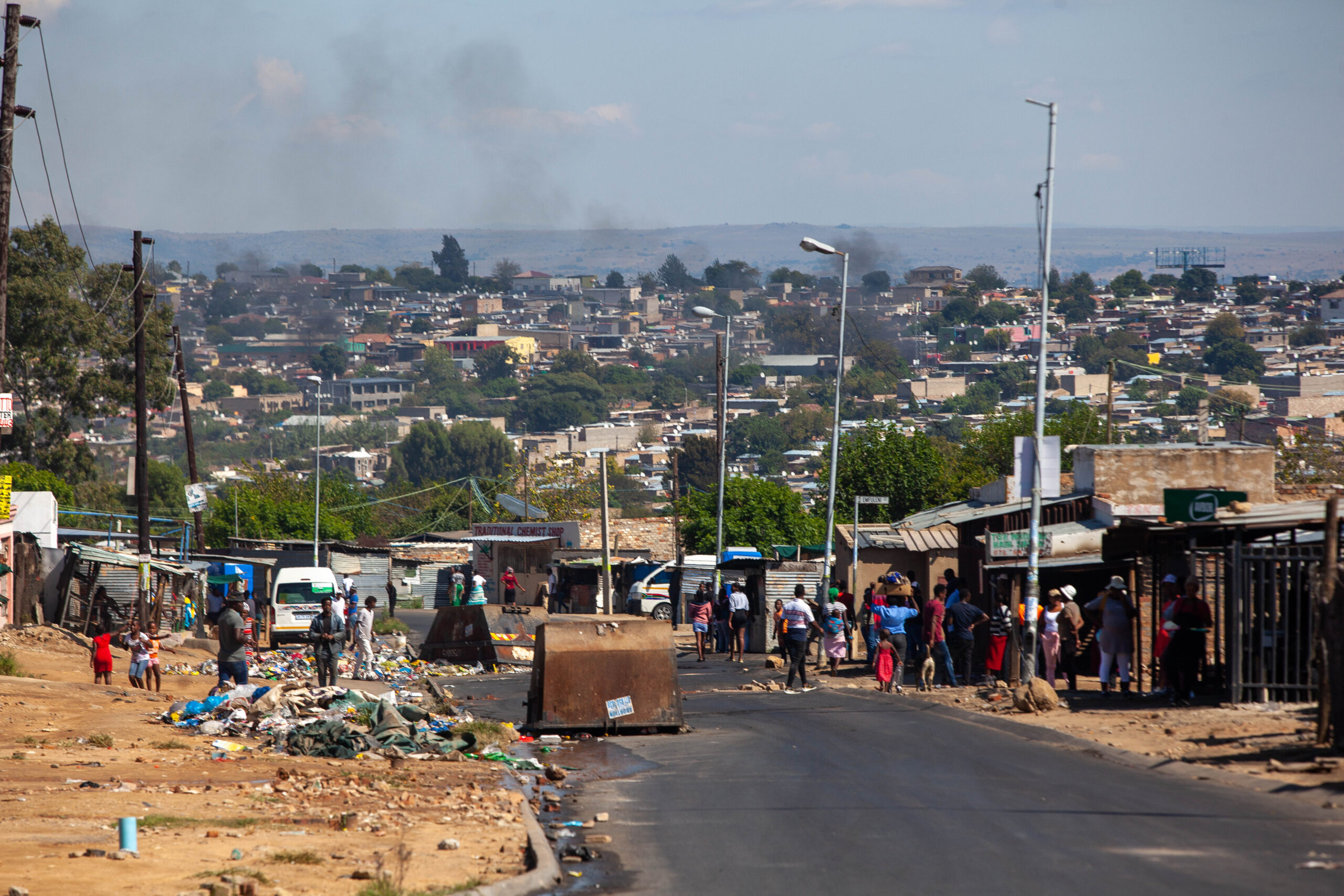According to data by Ande Global, there are currently more than 500 townships across South Africa, and together, these communities make up 40% of the country’s total population.
Entrepreneurs in these townships typically face numerous challenges, including lack of resources and funding required to start and expand their enterprises, as well as limited access to infrastructure, expertise, and support.
To assist the entrepreneurs, Global Alliance Africa, an initiative of Innovate UK KTN – has been running a Place-Based Innovation (PBI) intervention, which seeks to strengthen the capacity and resilience of Gauteng’s township economies.
It does this by working to unlock local and grassroots innovation ecosystems, with the understanding that innovation can play a key role in driving inclusive socio-economic development across the African continent.
TechCabal had a chat with Marisa Naidoo, Knowledge Transfer Manager for South Africa at Innovate UK KTN Global Alliance Africa, to know more about the project, its traction and what challenges it has faced in South Africa.
Background of Global Alliance Africa
“What we really do is try to understand the problems within the innovation ecosystem that are specific to townships. We then try to enable township innovators by utilising what currently exists and building on that so that their solutions become scalable and sustainable,” said Naidoo.
The Global Alliance Africa project comes from Innovate UK KTN which is a part of the Innovate UK group, a UK Innovation Agency. One of their global initiatives is a six-year project that is funded by UKAid and delivered by Innovate UK KTN. The project is also funded by the Foreign Commonwealth and Development Office as well. The six year project, being implemented in Kenya, Nigeria, South Africa and the UK, aims to maximise inclusive market access, funding, investment and knowledge transfer between the African countries and the UK.
In South Africa, the project is focusing specifically on township economies in the Gauteng province and how they can be catalysed using the people and infrastructure. To achieve this, an advisory board consisting of NGOs, universities, government stakeholders, and specialists from the UK has been set up to try to understand the problems of the township innovation ecosystem.
Global Alliance Africa’s modus operandi
According to Naidoo, one of Global Alliance Africa’s interventions works through a system called “open innovation”, which connects industries which have strenuous challenges to people who have solutions to these particular problems.
“What we do [through open innovation] is we support getting the solutions from the innovators, that will help tackle the challenges that the particular industry has. This then helps the innovator scale their market-ready product with an industry partner,” added Naidoo in an interview with TechCabal.
After connecting the innovator with an industry partner, Global Alliance Africa focuses on funding to enable the innovator to continue making compounding improvements to their product.
“Our funding approach focuses on providing access to funding opportunities for the African market. Through collaborative research, we are able to identify development funding opportunities in key thematic areas and share that information on what sort of funding opportunities exist with the innovators.”
In South Africa, the Global Alliance Africa project focuses on innovators who are creating solutions in the fields of energy, water and waste.
Global Alliance Africa’ traction
Global Alliance Africa’s innovation initiative focuses on 4 areas: reducing fragmentation and increasing collaboration, increasing entrepreneurial participation from youth and women, increasing the capacity of SMEs and support services in Gauteng, and improving access to investments.
To reduce fragmentation and increase collaboration, the project transforms research done by universities or other institutions of higher learning into impactful community projects.
“This research, which normally just sits at these institutions, can turn into impactful projects for communities that can provide business opportunities or some sort of social benefit for them,” said Naidoo.
To increase entrepreneurial participation from youth and women, Global Alliance Africa is working on a docuseries which profiles women in innovation at the grassroots level.
“The only time that women are profiled is during women’s month. Our docuseries looks at what women in innovation really need to succeed. This exposure will give the women access to the market in terms of investment opportunities and also offer women who watch it some form of mentorship and lessons in their own path,” added Naidoo.
Global Alliance Africa is partnering with a waste management SME in Diepsloot to help it scale up its operations. This forms part of its goal to help increase the capacity of SMEs in the region.
“We are putting together a lot of projects to give the SME the opportunity to scale up. What we’re working on is a sort of a shared economy model. So instead of the SME just being given a large amount of money and being told to scale up, we’re giving them all the necessities in order for them to scale up their model, so that they can be sustainable.”
Naidoo further stated that a lot of the problems with township economy businesses is that they usually invest their funding in purchasing large amounts of equipment. Naturally, this leads to large amounts of money being spent on maintenance and repairs of these equipment. This is the challenge a shared economy principle addresses.
“With a shared economy principle, you don’t necessarily buy a large amount of equipment, but you’re on a site that has equipment that you would share with other innovators. So you have less expenses, and you’re able to have, say, a 12-month period where you can grow your clientele and become more sustainable,” said Naidoo.
Lastly, to improve access to investments, Global Alliance Africa is facilitating a knowledge exchange process between Kenya, Nigeria, South Africa and the UK in order to identify and remove the barriers for investment into South Africa.
“We want to know what the barriers to investments are and to achieve this, we are working with venture capitalists, angel networks, and government entities to access investment for our innovators and entrepreneurs going forward. The question we are trying to answer is how can we unlock more investment into the South African economy?”
Some challenges the Global Alliance Africa project has faced
The main challenge the project has faced in South Africa, according to Naidoo, is the lack of communication and collaboration among the various entrepreneurs and innovators in the country. So many individuals and collectives are creating really innovative things, but they don’t really communicate with each other which contributes to them getting stuck if they don’t know what to do next.
To tackle this challenge, Global Alliance Africa acts as a facilitator of networking between innovators in the country through different initiatives.
“ For example, a few weeks ago, we did a local innovation network event. We invited a couple of parties to come together and really brainstorm around these four focus areas [mentioned above]. Some of the questions we wanted to explore were what are some of the challenges that innovators face? What are some solutions to these challenges? We did a little bit of a mapping exercise so that we can connect those dots,” concluded Naidoo.
In a country where townships make up a majority of urban populations and are faced by pressing socio-economic issues including youth unemployment and crime, fostering innovation through projects like Global Alliance Africa could go a long way in alleviating these challenges.





















